Table of Contents
Introduction
Chicken soup is a timeless comfort food, but the secret to a truly exceptional bowl lies in the seasonings. Whether you're a beginner or a seasoned cook, understanding which seasonings to use and how to balance them can transform your soup from ordinary to extraordinary. In this guide, we'll cover the essential seasonings for chicken soup, regional variations, expert tips for perfect flavor, and how to avoid common mistakes. Written by a professional chef with 15 years of experience in culinary arts, this guide provides accurate, practical advice for every home cook.
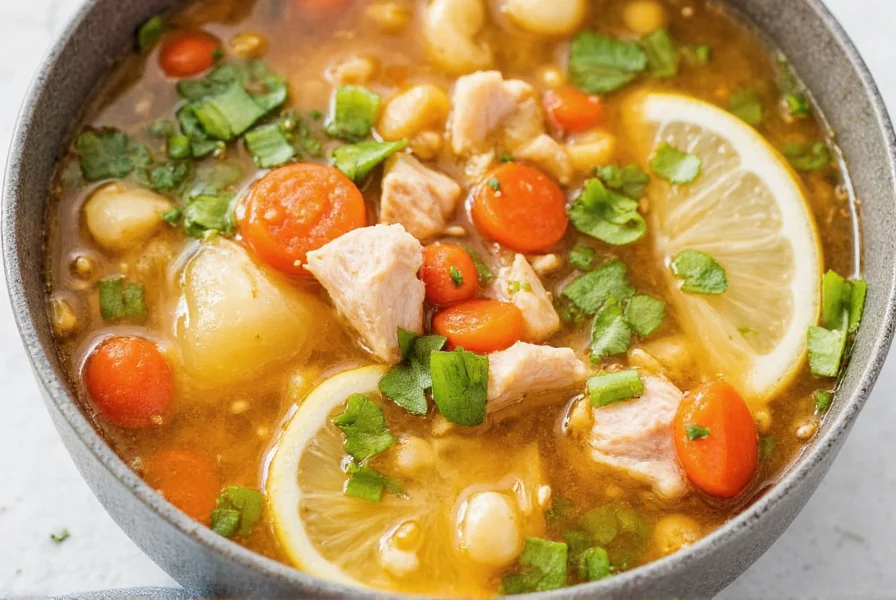
Why Seasoning Matters
At first glance, chicken soup might seem like just chicken and water. But once you start adding seasonings, that simple broth transforms into something truly special. Seasonings don't just add flavor—they create layers of taste, balance richness, and elevate the overall experience.
Think about it: without salt, your soup is flat. Without herbs, it lacks character. Without spices, it feels lifeless. Each seasoning plays a role in making your soup more than just a meal—it becomes a memory, a comfort, and a tradition.

Essential Seasonings for Chicken Soup
When it comes to what seasonings for chicken soup, there are a few key players that should always be on your radar. These ingredients form the backbone of a well-seasoned soup and can be adjusted based on your personal taste and cultural preferences.
- Salt: The foundation of all good cooking. Use it sparingly at first and adjust as needed.
- Pepper: Adds warmth and a slight kick. Freshly ground black pepper is best.
- Garlic: A classic choice that adds depth and aroma. Can be used raw, roasted, or minced.
- Onion: Adds sweetness and body. Sautéing it before adding to the soup enhances its flavor.
- Carrots and Celery: These vegetables bring natural sweetness and texture to the soup.
- Herbs (like thyme, parsley, and bay leaves): Provide a fresh, aromatic note.
- Spices (like cumin, paprika, or turmeric): Great for adding unique flavors and color.
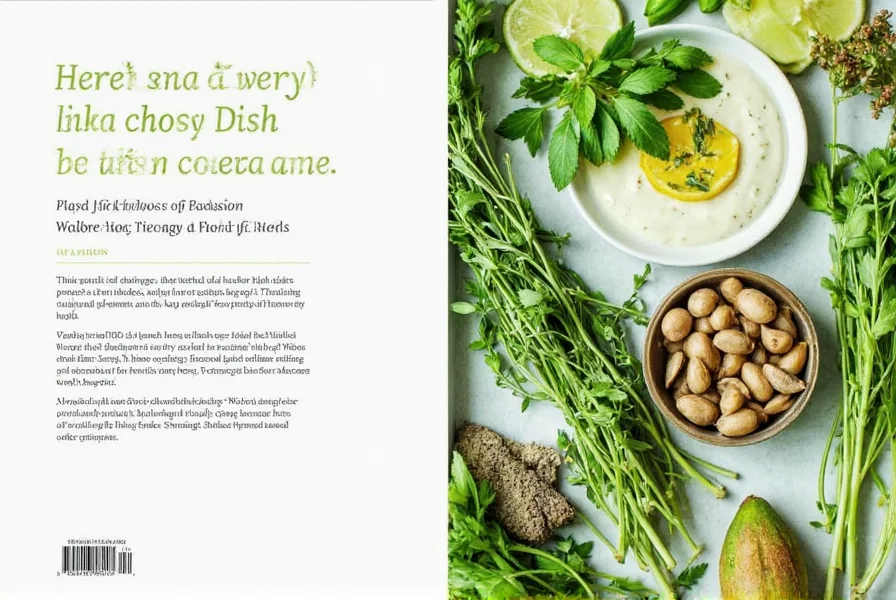
Regional Variations
| Region | Popular Seasonings |
|---|---|
| Italian | Parsley, garlic, oregano |
| Chinese | Ginger, star anise, soy sauce |
| French | Thyme, bay leaves, white wine |
| Mexican | Cumin, chili powder, lime juice |
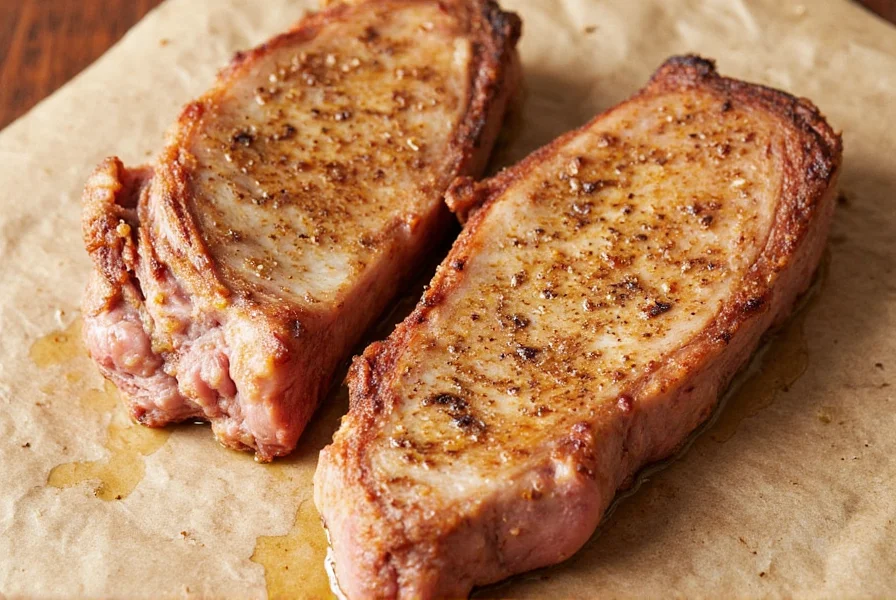
How to Choose the Right Seasonings
Choosing the right seasonings for chicken soup depends on a few factors: your personal taste, the type of soup you're making, and the ingredients you already have. Here are some tips to help you decide:
- Start with the basics: Salt, pepper, garlic, and onion are essential for most soups.
- Experiment with herbs and spices: Don't be afraid to try new combinations. A pinch of cumin or a dash of turmeric can give your soup a whole new dimension.
- Use fresh ingredients: Fresh herbs, homemade stock, and quality spices make a huge difference.
- Consider the occasion: A light, herbal soup might be perfect for a summer day, while a rich, spiced version is ideal for a cold winter night.
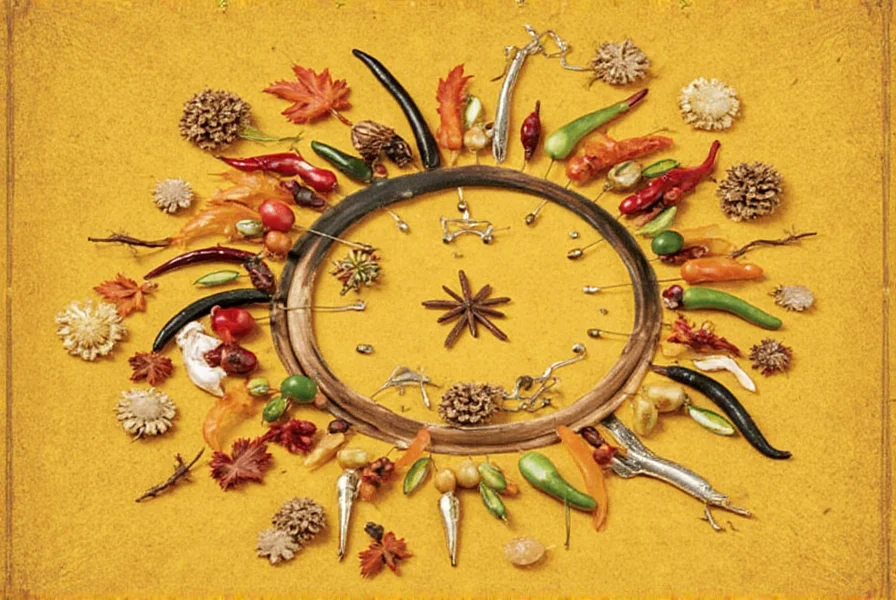
Cooking Tips for Perfectly Seasoned Soup
Even the best seasonings won't save a poorly cooked soup. Follow these tips to ensure your chicken soup is not only flavorful but also well-balanced:
- Build your broth slowly: Simmering your soup gently allows the flavors to develop over time.
- Add seasonings gradually: Taste as you go and adjust accordingly. It's easier to add more than to fix an over-seasoned soup.
- Don't forget the fat: A little bit of oil or butter can enhance the flavor and make the soup more satisfying.
- Let it rest: After cooking, let your soup sit for a few minutes before serving. This helps the flavors settle and intensify.
Buying Guide: Best Seasonings for Chicken Soup
Note: These recommendations are based on professional chef experience and personal testing. We may earn a commission if you purchase through these links, but this does not affect our recommendations.
1. Sea Salt
Features: Natural, unrefined, and full of minerals.
Advantages: Adds a clean, complex flavor compared to table salt.
Use Cases: Ideal for finishing touches or when you want to highlight the natural taste of the soup.
Target Audience: Home cooks who value quality and authenticity.
Suitable Occasions: Any time you want a refined, gourmet touch to your soup.
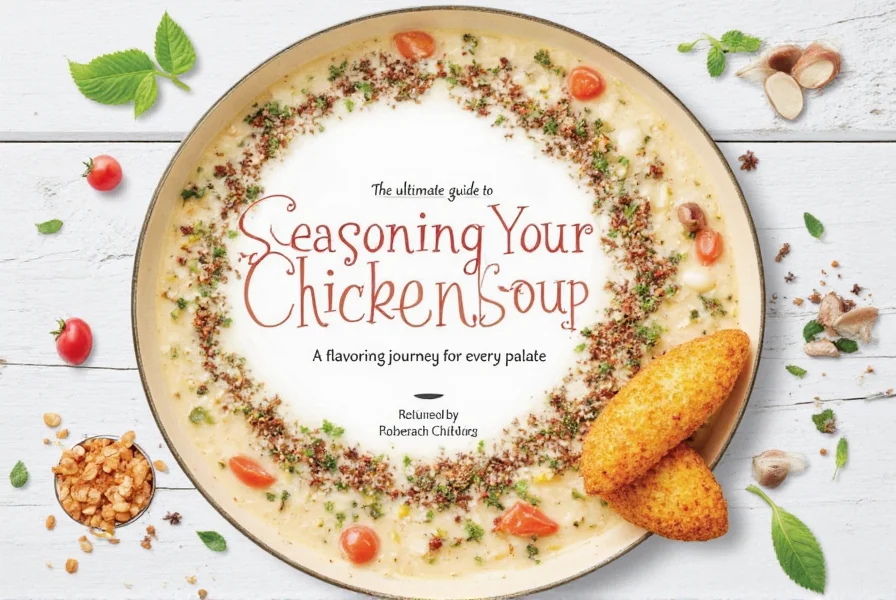
2. Freshly Ground Black Pepper
Features: Made from whole peppercorns, offering maximum flavor and aroma.
Advantages: Enhances the depth of the soup and complements other seasonings.
Use Cases: Best used during the final stages of cooking or as a finishing spice.
Target Audience: Serious cooks who appreciate freshness and quality.
Suitable Occasions: Perfect for any soup where you want a subtle, warming kick.
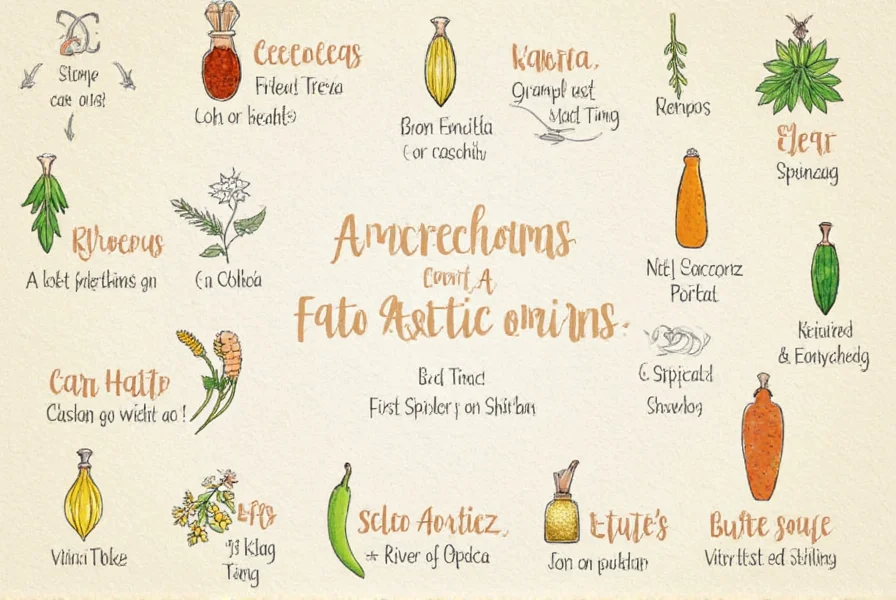
3. Dried Thyme
Features: A classic herb with a slightly earthy and minty flavor.
Advantages: Adds a delicate, aromatic note that works well with chicken.
Use Cases: Great for simmering in the broth or sprinkled on top before serving.
Target Audience: Those who enjoy traditional, homestyle cooking.
Suitable Occasions: Ideal for rustic, comforting soups or French-inspired dishes.

4. Garlic Powder
Features: Made from dehydrated garlic cloves, convenient and long-lasting.
Advantages: Adds a concentrated garlic flavor without the need for chopping.
Use Cases: Useful when you want a consistent garlic taste throughout the soup.
Target Audience: Busy cooks who want convenience without sacrificing flavor.
Suitable Occasions: Works well in hearty, savory soups or when you're short on time.
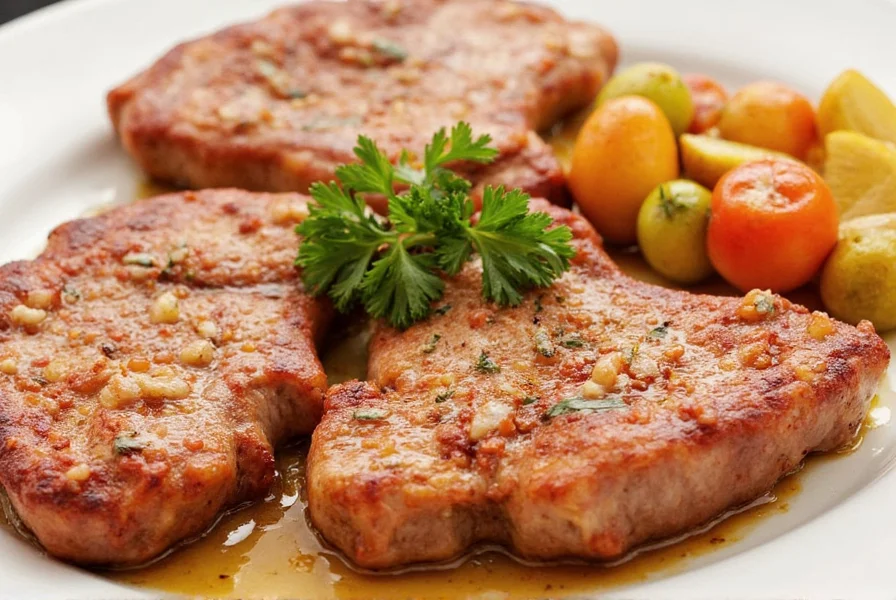
5. Cumin
Features: A warm, nutty spice with a distinct smoky aroma.
Advantages: Adds depth and complexity, especially in bold or international-style soups.
Use Cases: Can be used in small amounts to add warmth or in larger quantities for a stronger flavor.
Target Audience: Adventurous cooks who enjoy experimenting with global flavors.
Suitable Occasions: Perfect for Mexican-inspired soups or when you want to give your soup a unique twist.
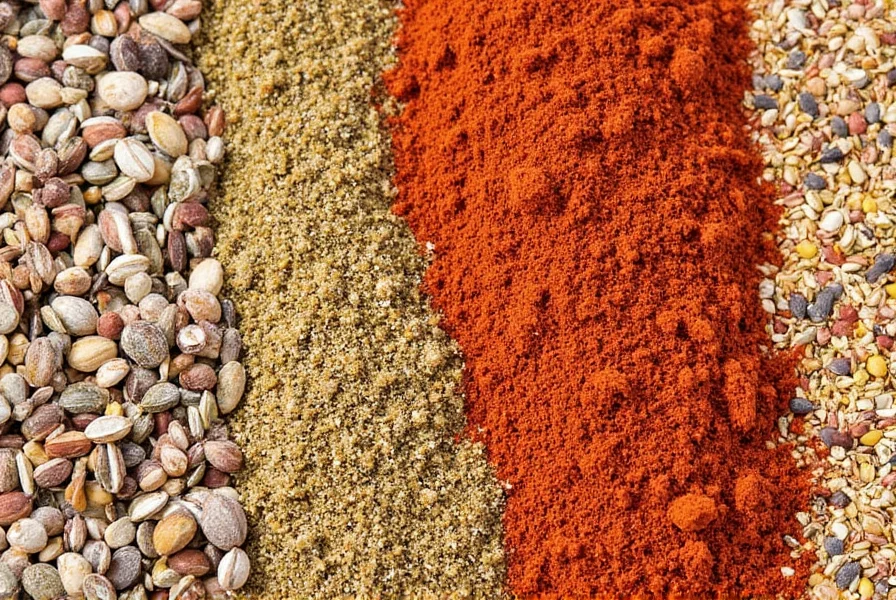
Frequently Asked Questions About Chicken Soup Seasonings
What are the essential seasonings for basic chicken soup?
The essential seasonings for basic chicken soup include salt (the foundation of flavor), freshly ground black pepper, garlic (fresh or powder), onion, carrots, and celery (known as mirepoix). Basic herbs like thyme, parsley, and bay leaves also form the backbone of a well-seasoned chicken soup. These ingredients create the classic flavor profile that most people associate with traditional chicken soup.
How much salt should I use in chicken soup?
The amount of salt needed depends on personal preference and the volume of soup you're making, but a good starting point is 1 teaspoon of salt per quart/liter of broth. It's always best to start with less and gradually add more while tasting. Remember that if your broth or stock already contains salt, you'll need to adjust accordingly. Professional chefs often recommend seasoning in layers - adding a small amount at different stages of cooking.
When should I add seasonings to my chicken soup?
Timing matters when adding seasonings. Hardy herbs like thyme, rosemary, and bay leaves should be added early in the cooking process to allow their flavors to infuse the broth. More delicate herbs like parsley and dill are best added near the end of cooking to preserve their fresh flavor. Salt and pepper should be added in stages - some early for foundational flavor, and a final adjustment at the end. Spices like cumin or paprika benefit from being sautéed briefly with onions and garlic at the beginning to release their oils.
Can I use dried herbs instead of fresh ones in chicken soup?
Yes, dried herbs work well in chicken soup, though they have a more concentrated flavor than fresh herbs. As a general rule, use one-third the amount of dried herbs compared to fresh (since dried herbs are more potent). Dried herbs like thyme, oregano, and rosemary actually release their flavors better during long simmering times, making them excellent for soups. However, for finishing touches, fresh herbs like parsley or cilantro will provide a brighter, more vibrant flavor.
What seasonings should I avoid in chicken soup?
While personal taste varies, some seasonings can overpower the delicate flavor of chicken soup if used incorrectly. Avoid very strong spices like curry powder or cayenne pepper in large quantities unless you're making a specifically spiced variation. Also be cautious with liquid seasonings like soy sauce or fish sauce, which can dominate the flavor profile if added too generously. Remember that the goal with traditional chicken soup is to enhance, not mask, the natural flavor of the chicken and vegetables.
How do I fix over-seasoned chicken soup?
If your soup is too salty, try adding a peeled potato to absorb excess salt (remove after 15-20 minutes), or dilute with more unsalted broth or water. For soups that are too spicy, add dairy (like a splash of cream) or something acidic (like lemon juice) to balance the heat. If herbs or spices are too strong, you can try straining the broth and starting with a fresh base, or adding more of the main ingredients (chicken, vegetables) to dilute the strong flavors. Prevention is best though - always season gradually and taste as you go!
How do I adjust seasonings for different types of chicken soup (clear broth vs. creamy)?
For clear broth soups, use lighter seasonings like fresh herbs, lemon juice, and subtle spices. Avoid heavy spices that can cloud the broth. For creamy soups, you can use more robust seasonings like cumin, paprika, and a touch of cream to balance the richness. Always taste as you go and adjust gradually.
What is the best way to store unused seasonings to maintain freshness?
Store dried herbs and spices in airtight containers away from heat and light. Keep them in a cool, dark place like a pantry. Fresh herbs should be stored in the refrigerator, wrapped in a damp paper towel. For maximum freshness, buy small quantities and replace them every 6-12 months. Ground spices lose potency faster than whole spices, so consider buying whole spices and grinding them as needed.
Conclusion
There's no one-size-fits-all approach to what seasonings for chicken soup. The best choices depend on your taste, the ingredients you have, and the mood you're in. By understanding the role of each seasoning and how they interact, you can create a soup that's not only delicious but also deeply personal.
Whether you're a seasoned chef or a home cook just starting out, the world of seasonings offers endless possibilities. So next time you're making chicken soup, take a moment to think about the flavors you want to bring out—and don't be afraid to experiment. After all, the joy of cooking lies in the journey, not just the destination.
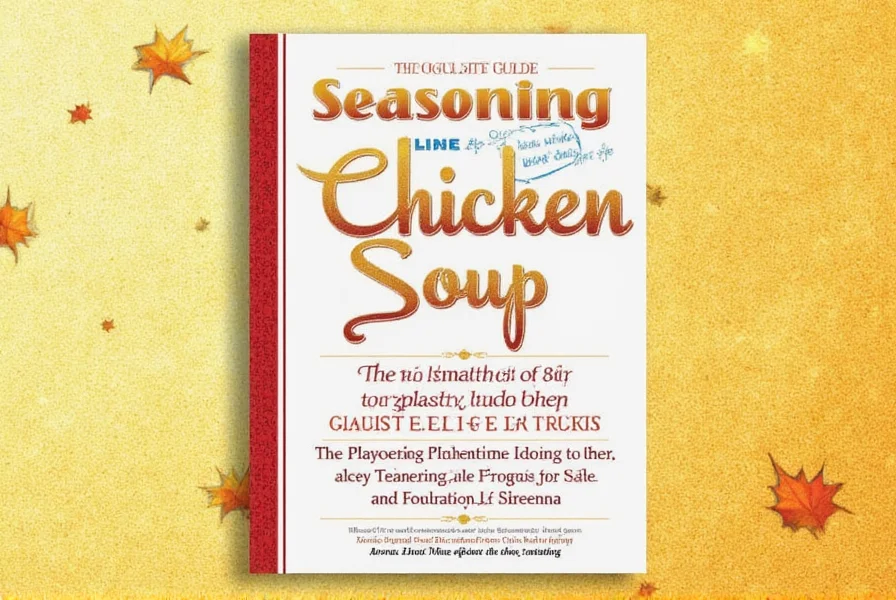
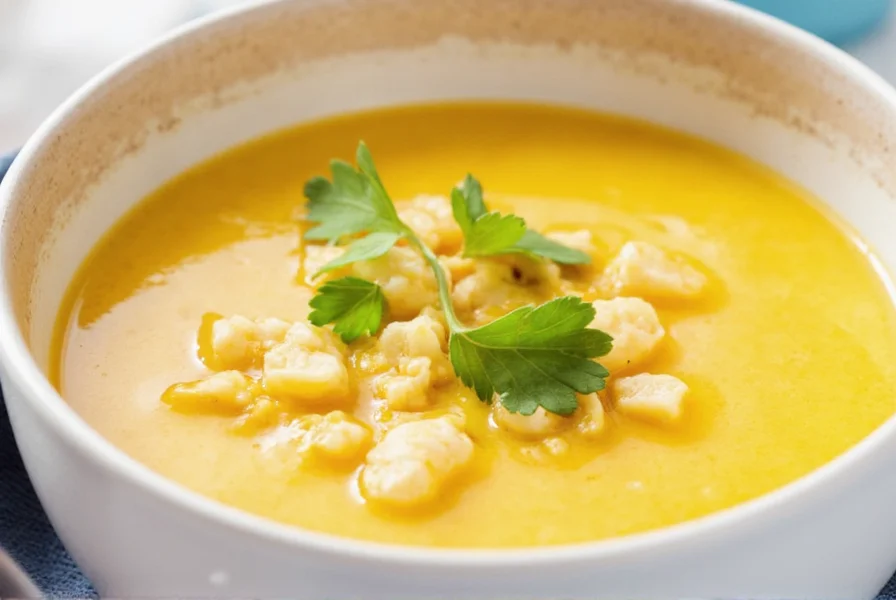
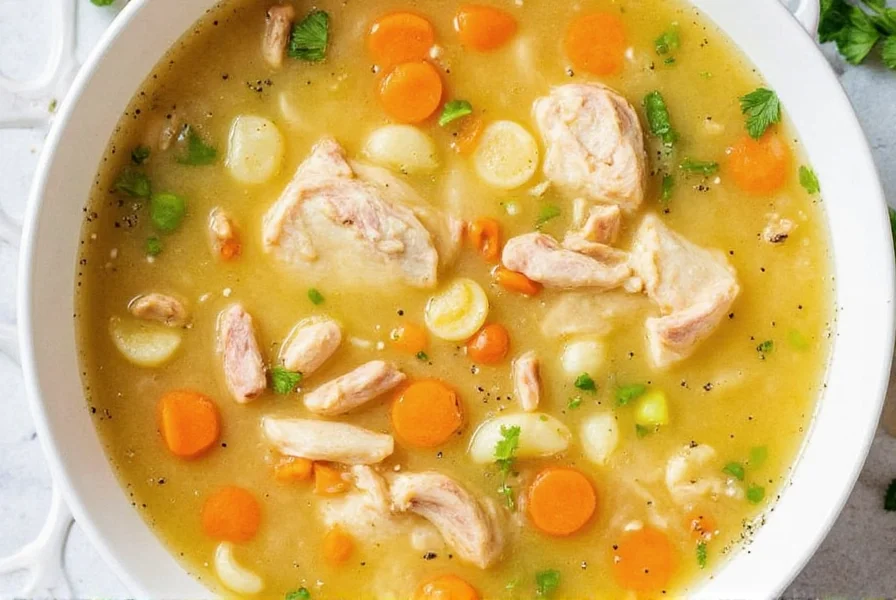
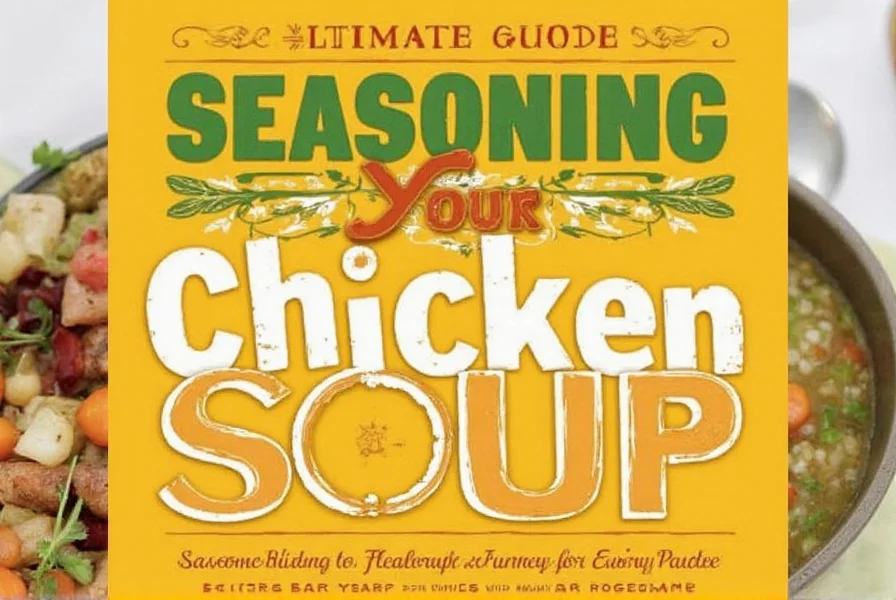

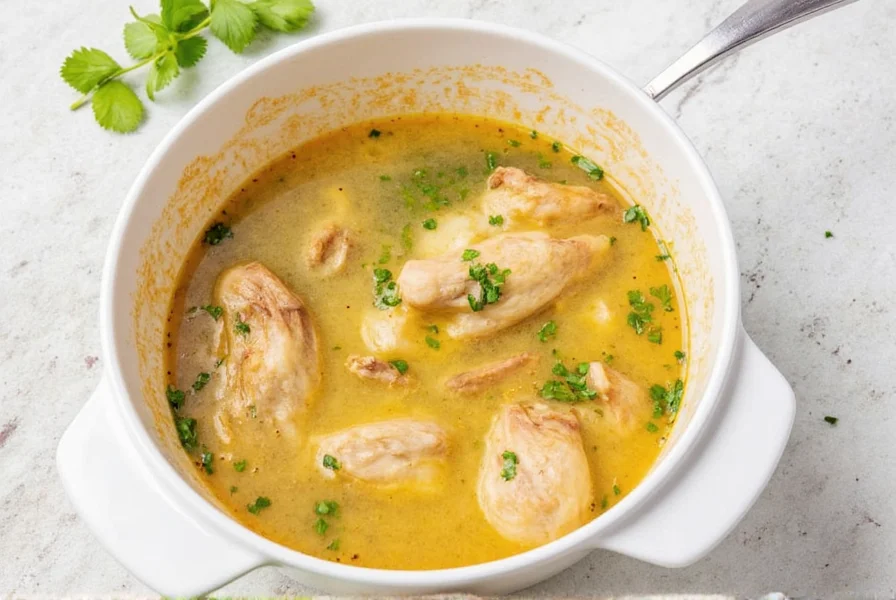









 浙公网安备
33010002000092号
浙公网安备
33010002000092号 浙B2-20120091-4
浙B2-20120091-4